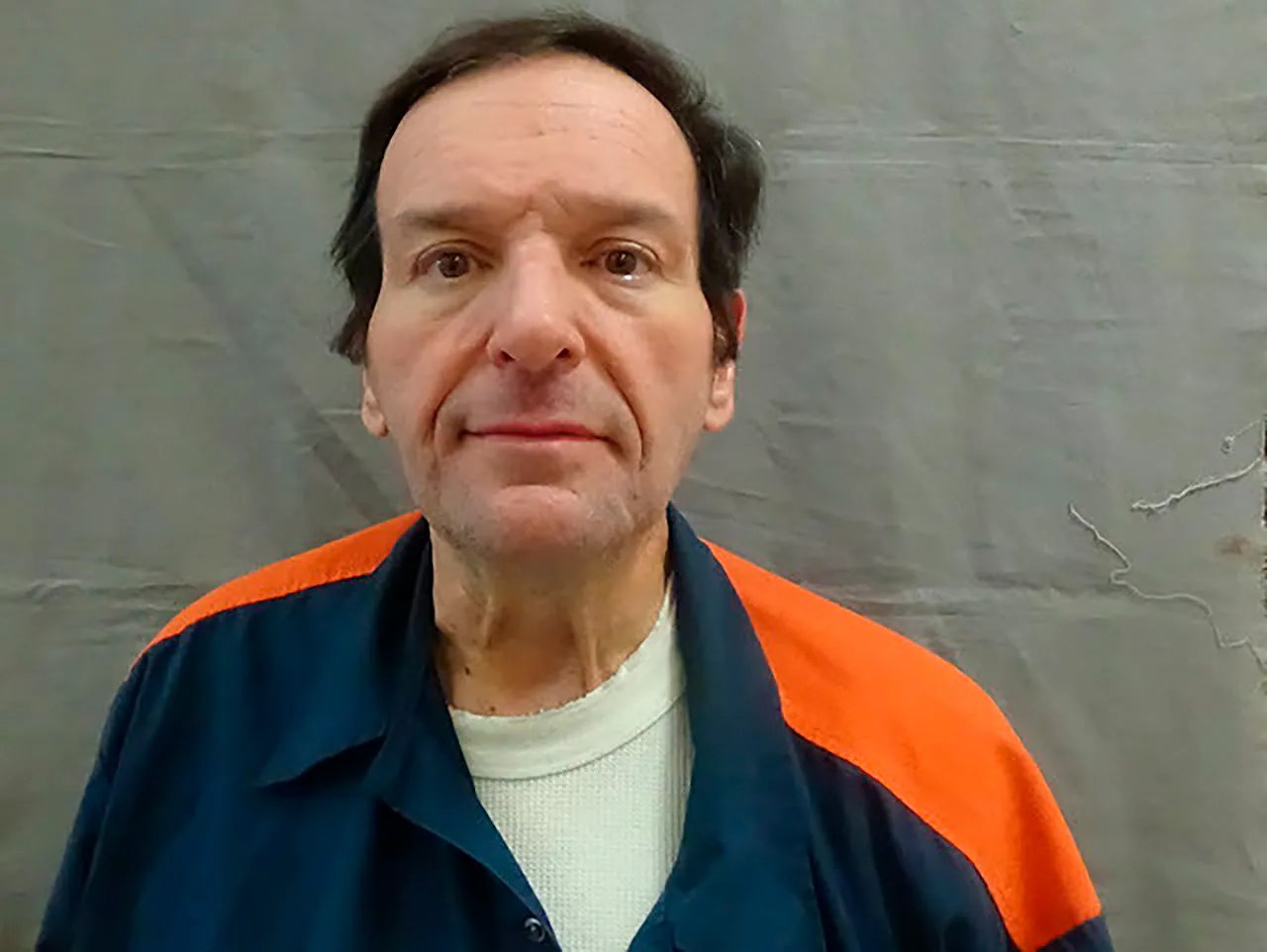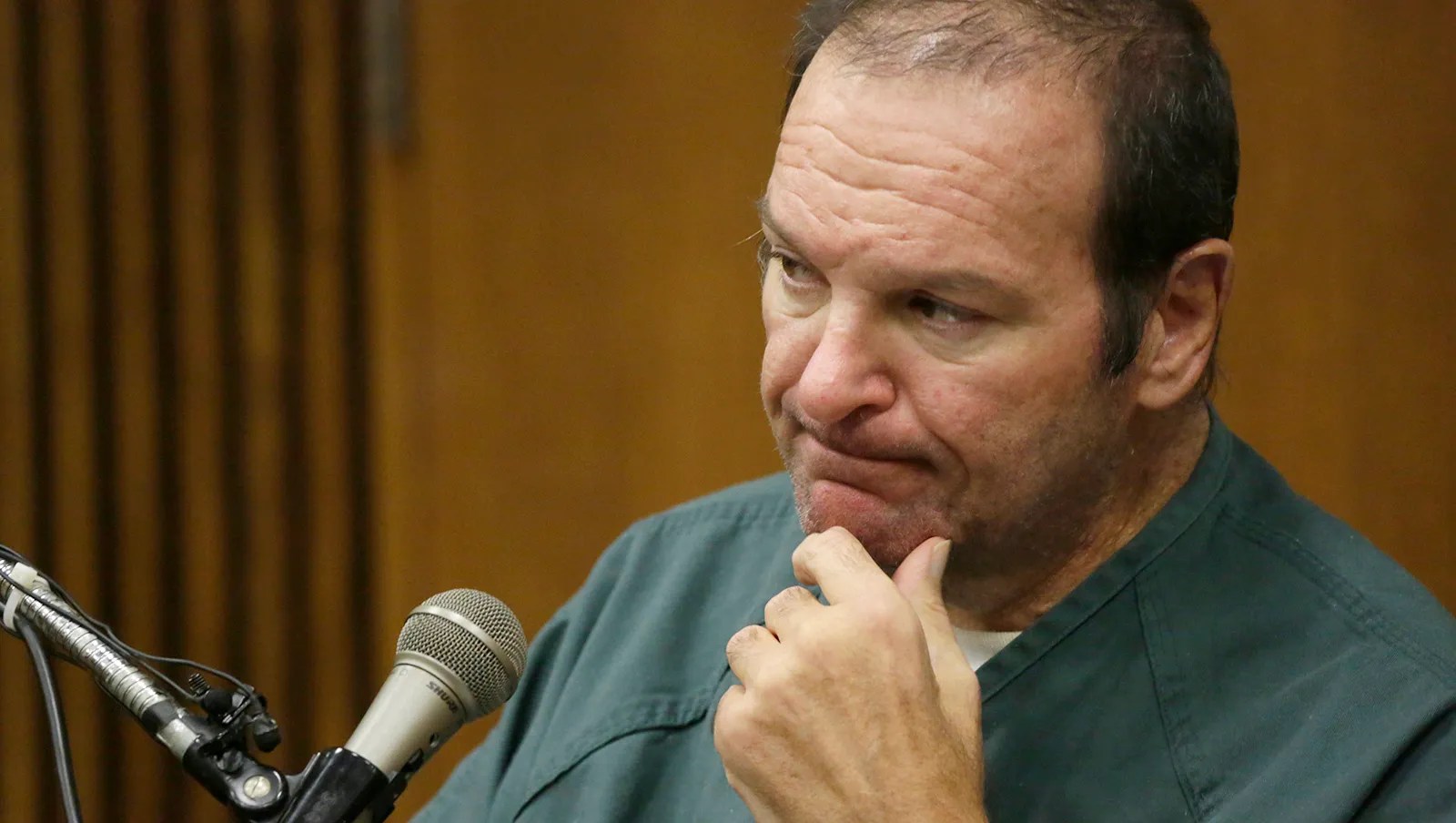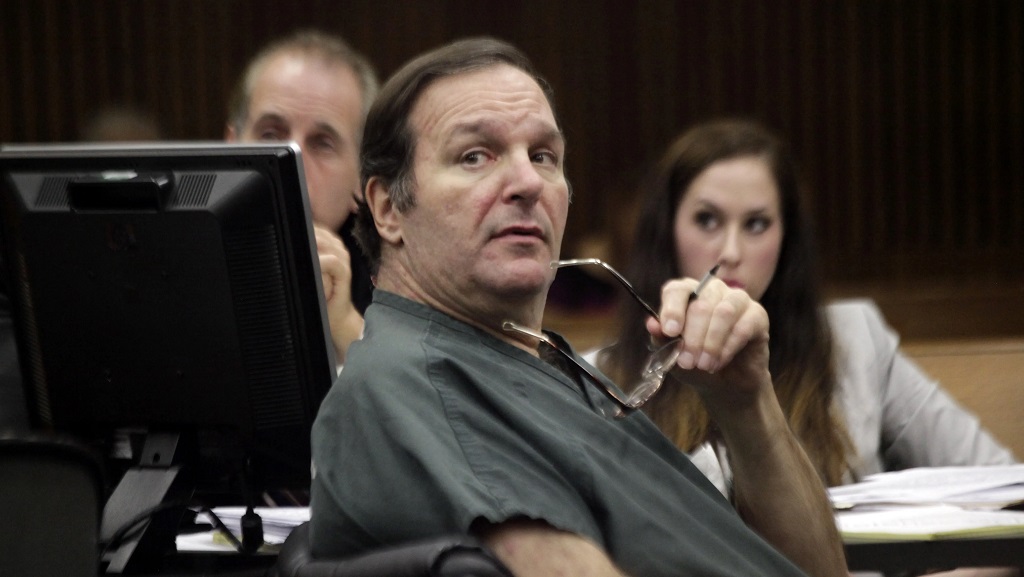Noun: Bob Bashara Cause of Death Illness and
The cause of death for Bob Bashara, who was convicted of murdering his wife in 2016, remains unknown.
Significance and Context
The investigation into Bashara's death is ongoing, and it is unclear what caused his illness. However, the case has raised questions about the treatment of prisoners in the Michigan penal system.
Article Preview
This article will examine the circumstances surrounding Bashara's death, including the investigation into his illness and the conditions in which he was being held.
Bob Bashara Cause Of Death Illness And
The circumstances surrounding Bob Bashara's death raise important questions about the treatment of prisoners in the Michigan penal system. Key aspects to consider include:
- Medical care
- Prison conditions
- Mental health services
- Overcrowding
- Violence
- Rehabilitation
- Recidivism
- Prison reform
These aspects are interconnected and impact the overall health and well-being of prisoners. For example, poor medical care and prison conditions can lead to mental health problems, which in turn can increase the risk of violence and recidivism. Prison reform is needed to address these issues and improve the lives of prisoners.
Medical care
Medical care is a critical component of any discussion about Bob Bashara's cause of death and illness. Bashara was convicted of murdering his wife in 2016 and died in prison in 2020. The exact cause of his death is unknown, but it is clear that he suffered from a number of health problems, including diabetes, heart disease, and obesity. These conditions may have been exacerbated by the lack of adequate medical care in the Michigan penal system.
Prisoners in Michigan have a long history of complaining about the lack of medical care. A 2019 report by the Michigan Department of Corrections found that the state's prisons are understaffed and that prisoners often have to wait months for appointments. The report also found that prisoners are often denied necessary medications and treatments. These problems are likely to have contributed to Bashara's death.
The lack of adequate medical care in Michigan's prisons is a serious problem that needs to be addressed. Prisoners have a right to receive the same level of medical care as other citizens. The state of Michigan needs to take steps to ensure that prisoners have access to the medical care they need.
Prison conditions
Prison conditions are a significant factor in Bob Bashara's cause of death and illness. The Michigan penal system is known for its overcrowding, violence, and lack of adequate medical care. These conditions can take a toll on the physical and mental health of prisoners, and they may have contributed to Bashara's death.
- Overcrowding
Michigan's prisons are overcrowded, with more than 38,000 prisoners in a system designed for 30,000. Overcrowding can lead to a number of health problems, including infectious diseases, mental health problems, and violence. - Violence
Michigan's prisons are also violent, with a rate of assaults that is more than twice the national average. Violence can lead to physical injuries, mental health problems, and even death. - Lack of adequate medical care
Michigan's prisons have a long history of providing inadequate medical care to prisoners. Prisoners often have to wait months for appointments, and they are often denied necessary medications and treatments. This lack of care can lead to serious health problems and even death. - Poor sanitation
Michigan's prisons are often unsanitary, with vermin and mold being common problems. Poor sanitation can lead to a number of health problems, including respiratory infections, skin infections, and gastrointestinal problems.
These conditions are likely to have contributed to Bashara's death. He was obese and had a history of heart disease and diabetes. These conditions are all exacerbated by the lack of adequate medical care and the stress of prison life. It is likely that Bashara's death was preventable, and it is a tragedy that he did not receive the care he needed.
Mental health services
Mental health services are an essential part of any discussion about Bob Bashara's cause of death and illness. Bashara was convicted of murdering his wife in 2016 and died in prison in 2020. The exact cause of his death is unknown, but it is clear that he suffered from a number of mental health problems, including depression and anxiety. These conditions may have been exacerbated by the lack of adequate mental health care in the Michigan penal system.
- Access to care
One of the most important aspects of mental health services is access to care. Prisoners in Michigan have a difficult time accessing mental health care, due to a shortage of mental health professionals and long wait times for appointments. This lack of access can lead to untreated mental health problems, which can have a negative impact on a prisoner's physical and mental health.
- Quality of care
Another important aspect of mental health services is the quality of care. Prisoners in Michigan often receive poor quality mental health care. This may be due to a lack of training among mental health professionals, or it may be due to the fact that prisons are often understaffed and overcrowded. Poor quality mental health care can lead to misdiagnosis, incorrect treatment, and even worsening of symptoms.
- Stigma
Stigma is a major barrier to accessing mental health services in prison. Prisoners may be reluctant to seek help for mental health problems due to fear of being labeled as "crazy" or "weak." This stigma can prevent prisoners from getting the help they need, which can lead to serious consequences.
- Alternatives to incarceration
For some prisoners, mental health problems may be a contributing factor to their criminal behavior. In these cases, diversion programs and other alternatives to incarceration may be more appropriate than prison. Diversion programs can provide prisoners with access to mental health treatment and other services that can help them to address the underlying causes of their criminal behavior.
Mental health services are an essential part of a comprehensive approach to addressing the needs of prisoners. By providing prisoners with access to quality mental health care, we can help to improve their physical and mental health and reduce recidivism.
Overcrowding
Overcrowding is a significant factor in Bob Bashara's cause of death and illness. As of 2023, Michigan's prisons are operating at 105% capacity, with over 38,000 prisoners housed in a system designed for 36,000. This overcrowding has a number of negative consequences, including:
- Increased risk of violence
Overcrowding can lead to increased violence, as prisoners are forced to live in close quarters with limited resources. This can lead to fights, assaults, and even homicides. - Spread of disease
Overcrowding can also lead to the spread of disease, as prisoners are more likely to come into contact with sick individuals. This can lead to outbreaks of infectious diseases, such as tuberculosis and influenza. - Mental health problems
Overcrowding can also lead to mental health problems, as prisoners are more likely to experience stress, anxiety, and depression. This can be exacerbated by the lack of privacy and the constant noise and chaos of an overcrowded prison. - Limited access to healthcare
Overcrowding can also limit prisoners' access to healthcare. This is because overcrowded prisons are often understaffed and underfunded, which can lead to long wait times for medical appointments and a lack of necessary medications.
These are just some of the negative consequences of overcrowding in Michigan's prisons. Overcrowding is a serious problem that needs to be addressed in order to improve the health and safety of prisoners.
Violence
Violence is a significant factor in Bob Bashara's cause of death and illness. Bashara was convicted of murdering his wife in 2016 and died in prison in 2020. The exact cause of his death is unknown, but it is clear that he suffered from a number of health problems, including diabetes, heart disease, and obesity. These conditions may have been exacerbated by the violence he experienced in prison.
Violence is a common problem in Michigan's prisons. A 2019 report by the Michigan Department of Corrections found that the state's prisons are understaffed and that prisoners often have to wait months for appointments. The report also found that prisoners are often denied necessary medications and treatments. These problems are likely to have contributed to Bashara's death.
The violence in Michigan's prisons is a serious problem that needs to be addressed. Prisoners have a right to be safe and free from violence. The state of Michigan needs to take steps to ensure that prisoners are protected from violence.
Rehabilitation
Rehabilitation is a critical component of any discussion about Bob Bashara's cause of death and illness. Bashara was convicted of murdering his wife in 2016 and died in prison in 2020. The exact cause of his death is unknown, but it is clear that he suffered from a number of health problems, including diabetes, heart disease, and obesity. These conditions may have been exacerbated by the lack of adequate rehabilitation services in the Michigan penal system.
Rehabilitation is the process of helping prisoners to change their behavior and become productive members of society. This can be done through a variety of programs and services, such as education, job training, and counseling. Rehabilitation is important for a number of reasons. First, it can help to reduce recidivism. Prisoners who participate in rehabilitation programs are less likely to commit crimes after they are released from prison. Second, rehabilitation can help prisoners to develop the skills they need to be successful in the community. This can include finding a job, supporting a family, and staying out of trouble. Third, rehabilitation can help prisoners to address the underlying causes of their criminal behavior. This can include mental health problems, substance abuse, and poverty.
There is a growing body of research that supports the effectiveness of rehabilitation programs. A study by the RAND Corporation found that prisoners who participated in rehabilitation programs were 43% less likely to commit crimes after they were released from prison. Another study by the Center for American Progress found that prisoners who participated in rehabilitation programs were more likely to find jobs and earn higher wages after they were released from prison.
Despite the evidence that supports the effectiveness of rehabilitation programs, funding for these programs has been declining in recent years. This is due in part to the perception that rehabilitation is too expensive. However, the evidence shows that rehabilitation programs actually save money in the long run by reducing recidivism and crime. In addition, rehabilitation programs can help to improve the lives of prisoners and their families.
Recidivism
Recidivism is a significant factor in the discussion about Bob Bashara's cause of death and illness. Recidivism is the tendency of a criminal to re-offend after being released from prison. It is a complex issue with a number of contributing factors, including lack of rehabilitation, mental health problems, and poverty. Recidivism has a number of negative consequences, including increased crime rates, victimization, and strain on the criminal justice system.
- Types of Recidivism
There are different types of recidivism, including general recidivism, violent recidivism, and property recidivism. General recidivism is the most common type and refers to any new criminal conviction after release from prison. Violent recidivism refers to the commission of a new violent crime after release from prison. Property recidivism refers to the commission of a new property crime after release from prison.
- Causes of Recidivism
There are a number of factors that can contribute to recidivism, including lack of rehabilitation, mental health problems, and poverty. Lack of rehabilitation can make it difficult for prisoners to successfully reintegrate into society after release. Mental health problems can also contribute to recidivism, as they can make it difficult for prisoners to control their behavior and make good decisions. Poverty can also be a contributing factor to recidivism, as it can make it difficult for prisoners to find jobs and housing after release.
- Consequences of Recidivism
Recidivism has a number of negative consequences, including increased crime rates, victimization, and strain on the criminal justice system. Increased crime rates are a direct result of recidivism, as repeat offenders are more likely to commit new crimes. Victimization is also a consequence of recidivism, as victims of crime are more likely to be repeat victims. Recidivism also puts a strain on the criminal justice system, as it requires additional resources to arrest, prosecute, and incarcerate repeat offenders.
- Preventing Recidivism
There are a number of things that can be done to prevent recidivism, including providing rehabilitation programs, addressing mental health problems, and reducing poverty. Rehabilitation programs can help prisoners to develop the skills they need to be successful in the community after release. Addressing mental health problems can also help to prevent recidivism, as it can make it easier for prisoners to control their behavior and make good decisions. Reducing poverty can also help to prevent recidivism, as it can make it easier for prisoners to find jobs and housing after release.
Recidivism is a complex issue with a number of contributing factors and negative consequences. However, there are a number of things that can be done to prevent recidivism. By providing rehabilitation programs, addressing mental health problems, and reducing poverty, we can help to reduce recidivism and make our communities safer.
Prison reform
Prison reform encompasses a wide range of efforts aimed at improving the conditions and outcomes of the prison system. It is a complex and multifaceted issue, with various components and implications, especially in relation to cases like Bob Bashara's cause of death and illness. Here are four key aspects of prison reform:
- Rehabilitation and education
Prison reform advocates for increased focus on rehabilitation and education programs within prisons. This includes providing inmates with opportunities to learn new skills, earn degrees, and participate in therapeutic programs. Such programs aim to reduce recidivism rates and improve the overall well-being of prisoners, potentially preventing cases like Bashara's where health issues may have been exacerbated by a lack of adequate care and rehabilitation.
- Healthcare and mental health services
Prison reform also emphasizes the importance of providing adequate healthcare and mental health services to inmates. This includes access to regular medical check-ups, mental health screenings, and treatment for chronic conditions. Failure to provide proper healthcare can have severe consequences, as seen in Bashara's case where underlying health issues may have contributed to his death.
- Prison conditions and overcrowding
Prison reform advocates foring prison conditions and reducing overcrowding. Overcrowded prisons can lead to unsanitary living conditions, increased violence, and limited access to resources. These factors can negatively impact the physical and mental health of inmates, potentially contributing to cases like Bashara's where illness and lack of proper care may have played a role.
- Alternatives to incarceration
Diverting non-violent offenders away from prison and into community-based programs is another aspect of prison reform. This can include drug courts, mental health courts, and other programs that provide support and rehabilitation without resorting to incarceration. Such alternatives can help reduce the prison population, alleviate overcrowding, and provide more appropriate and effective interventions for certain individuals.
These are just a few of the key aspects of prison reform. Implementing comprehensive reforms that address these issues can potentially improve the health and well-being of inmates, reduce recidivism rates, and create a more just and humane prison system. It is important to note that prison reform is an ongoing process that requires collaboration between policymakers, prison administrators, healthcare professionals, and community organizations.
In examining Bob Bashara's cause of death and illness, this article has shed light on the multifaceted nature of the prison system and its impact on the health and well-being of inmates. Key ideas that emerge include the crucial need for adequate healthcare, mental health services, and rehabilitation programs within prisons, as underscored by Bashara's case. Moreover, prison conditions and overcrowding have been highlighted as contributing factors to the decline of inmates' health, emphasizing the importance of prison reform efforts aimed at improving living conditions and reducing recidivism.
As we reflect on the insights gained, it is imperative that we continue to advocate for comprehensive prison reforms that prioritize the rehabilitation and well-being of inmates. By addressing the underlying issues within the prison system, we can work towards creating a more just and humane society. The tragic case of Bob Bashara serves as a stark reminder of the urgent need to improve our prison systems and ensure that inmates receive the healthcare, rehabilitation, and support they deserve.
Unveiling Lavinia Valbonesi: Family, Relationships, And Career
Unveiling Mackenzie Davis: Height, Measurements, And Everything You Want To Know
Unveiling Brandie Bowman: Age And More From "Love Is Blind"

‘Master Bob’ Bashara, convicted in wife’s death, dies at 62

Just overflowing Desperate ecstasy spose grosse Mary blow hole formal

Bob Bashara Cause Of Death Illness And Case Update
ncG1vNJzZmiamai6qrjLmp9vZpGiwHR6w6KeoqyRobykscCnqqmZk5rAb6%2FOpmabp5Jir6K%2Fx5qpmmWTlsK0sYyonWaclZbBqXnIpaOnnaOoeqK6w2efraWc